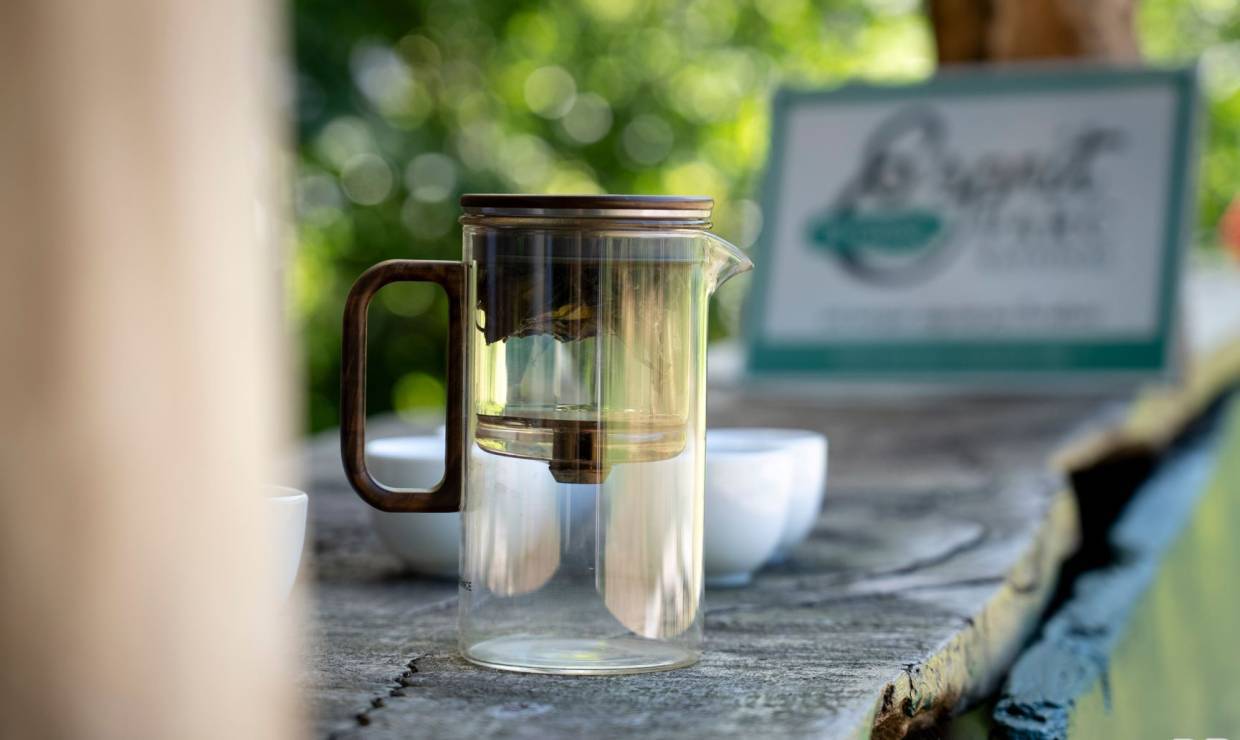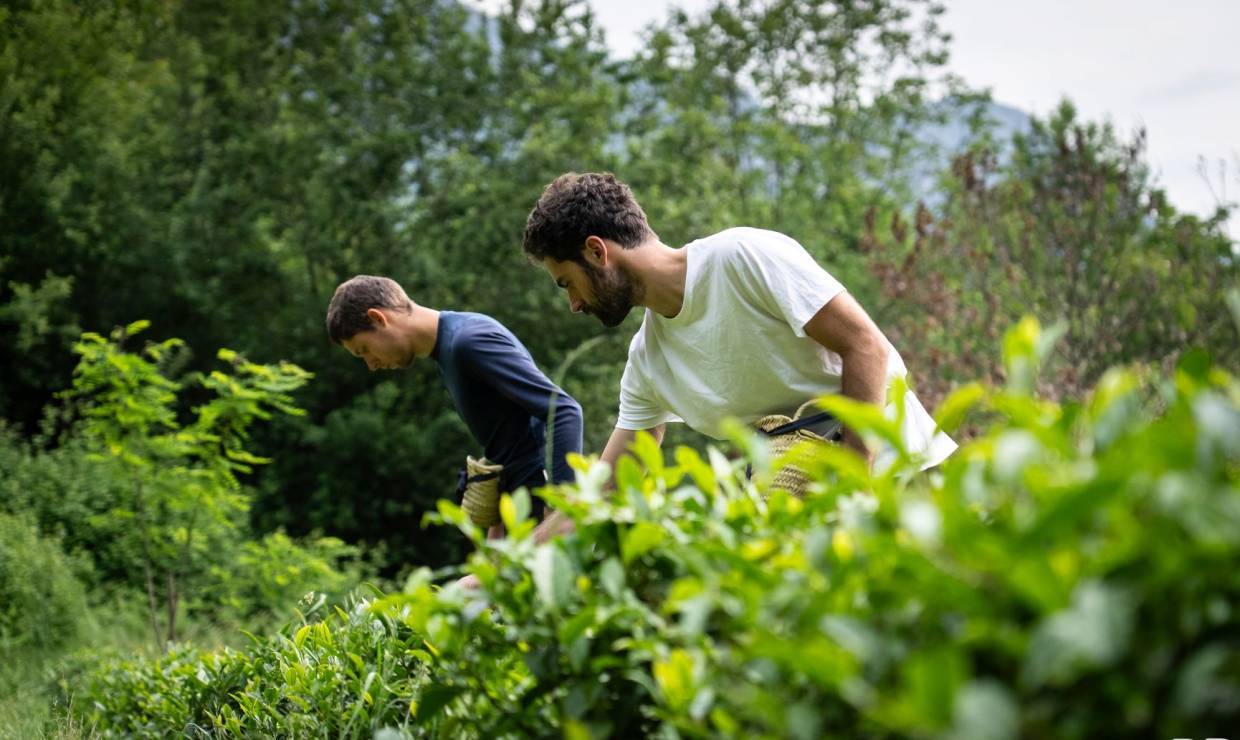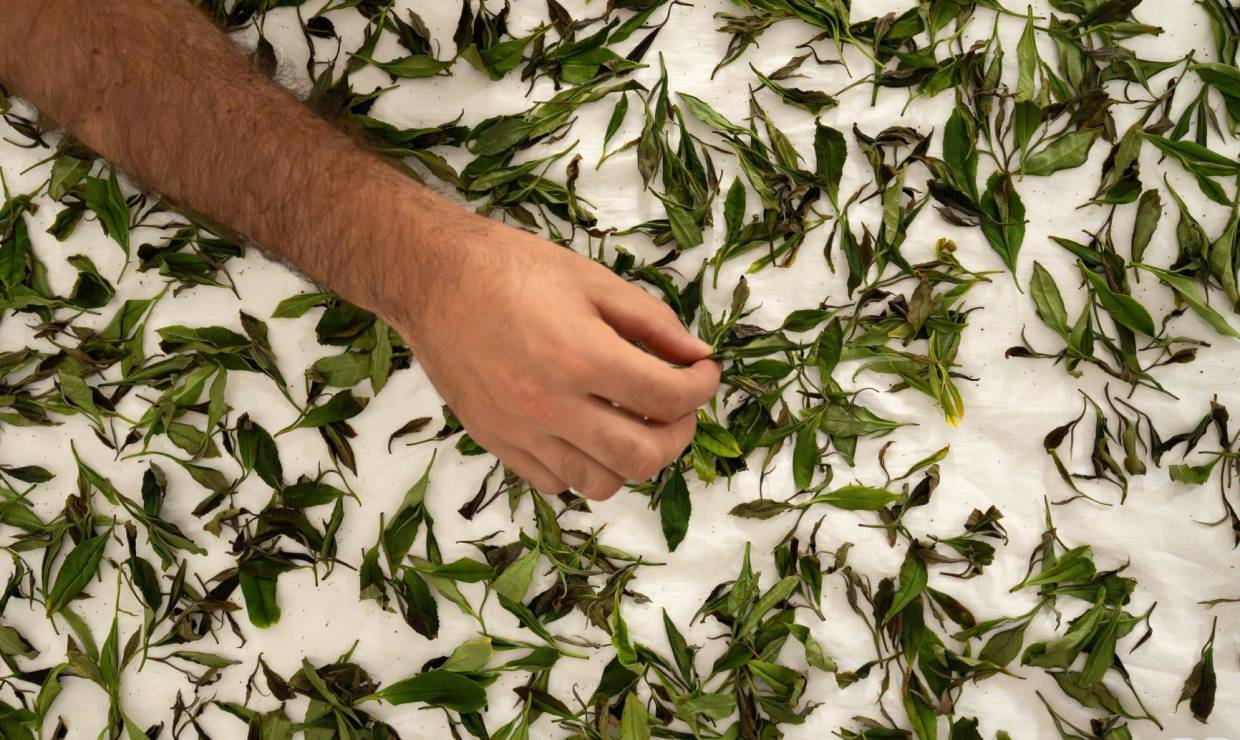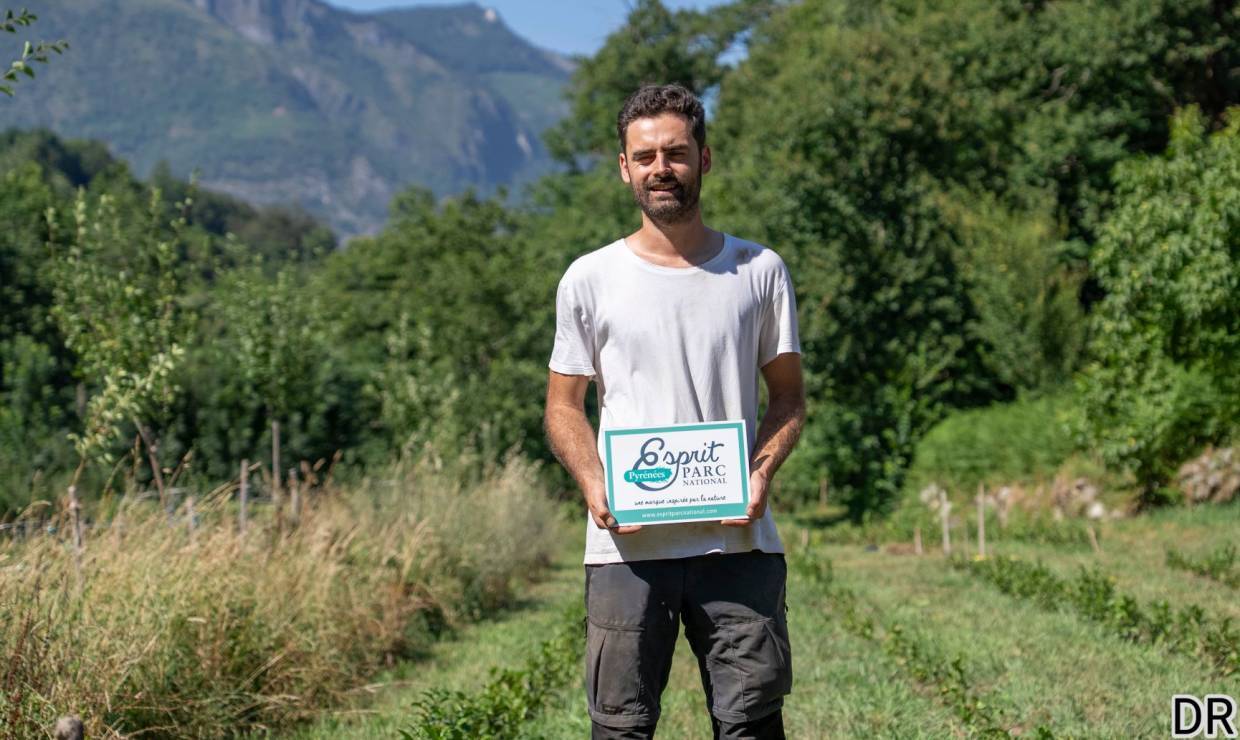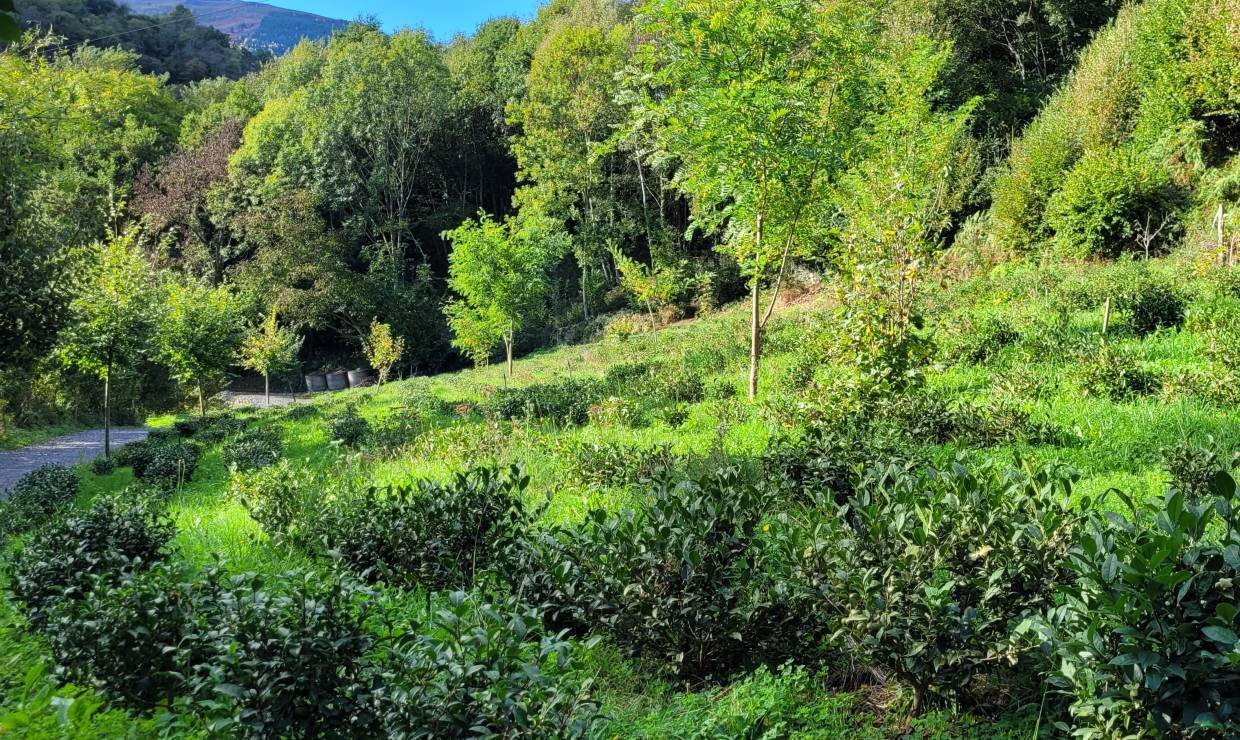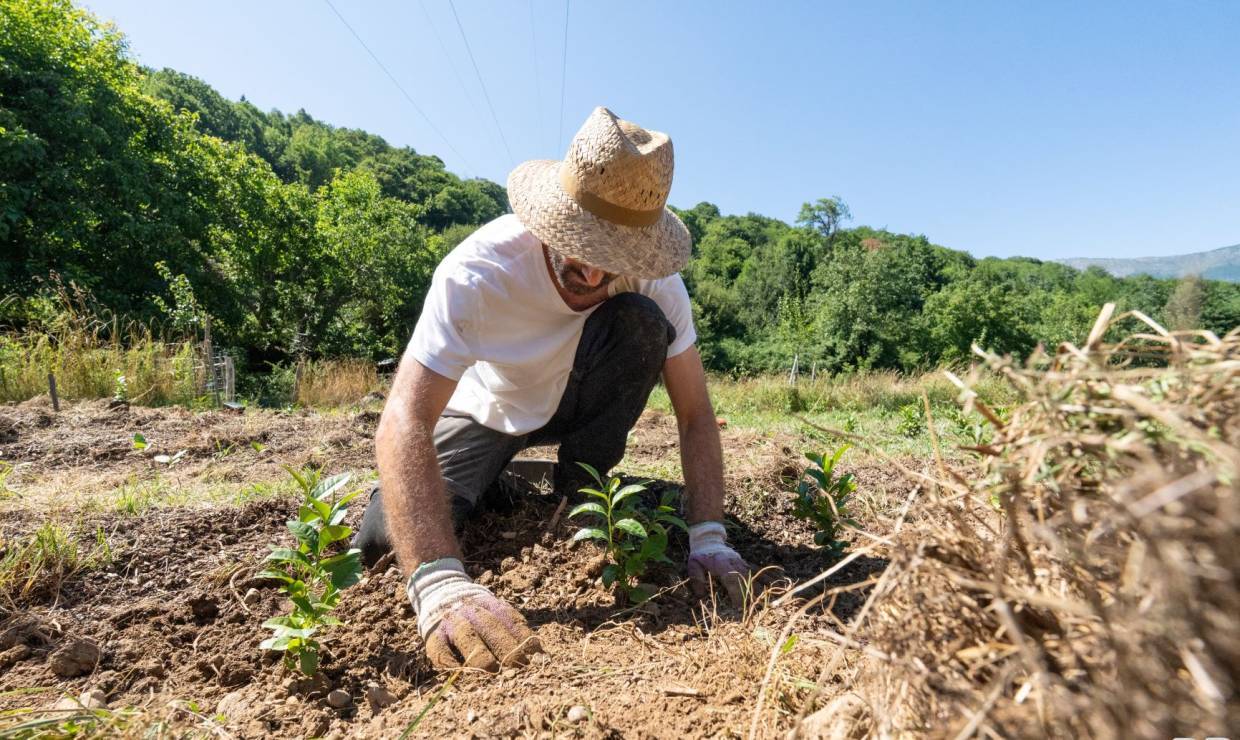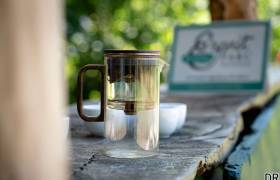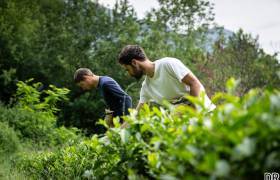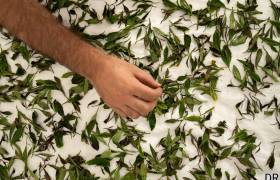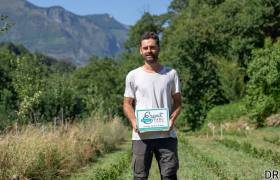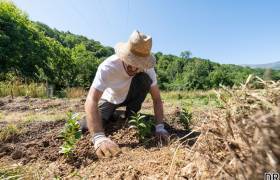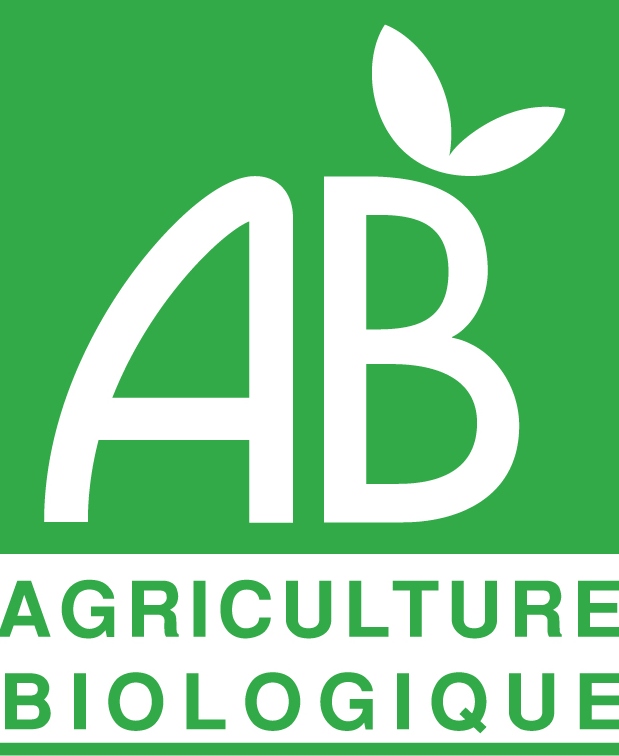Thé des Pyrénées - Les terrasses de l'Arrieulat
19 ter route de l'Aubisque
65 400 Argelès-Gazost
France
Come and discover the first artisanal, agro-ecological tea garden in the heart of the Pyrenees.
Born of a family project, Lucas developed a tea plantation on the terraces of Arrieulat in Argelès-Gazost.
From his travels around the world and France, he wanted to develop tea growing in his native land. After several years of experimentation and testing, Lucas is now pioneering this project in the Pyrenees.
Today, his plantation continues to grow and develop with new varieties of tea:
- WHITE TEA: a fine plucking and natural drying process lasting several days in the shade, indoors. A very fine, fresh and silky tea, blending greenness and zesty fragrances with white flowers and peach. It can be infused many times, from 5 to 10 depending on the infusion method.
- BLACK TEA: a very round, slightly tart tea, with floral and praline notes, the result of light post-production roasting. A rich, balanced, gourmet tea.
- YELLOW TEA: a tea produced from the twigs of tea bushes, mature leaves and stems, in a Japanese-inspired style (Kyobancha), incorporating a yellowing process (24-hour fermentation) that rounds out the tea, and a roasting process that brings gourmet roasted notes (cocoa, toast, vanilla). A surprising, gourmet tea, to be drunk as a long infusion or as a decoction for extra strength.
Come and meet Lucas on one of the walks he organizes to show you around his plantation and, above all, to taste his teas.
Born of a family project, Lucas Ben Moura is developing a tea plantation on the Arrieulat terraces in Argelès-Gazost. From his travels around the world and France, he wanted to develop tea growing in his native land. After several years of experimentation and testing, Lucas is now pioneering this project in the Pyrenees. Today, his plantation continues to grow and develop with new varieties of tea (white, black and yellow).
I studied to be an agricultural engineer, and in that course I first became interested in wine, and tea came later as a parallel to wine. It was at this point that I tested a tea plantation in Argèles-Gazost and went to Asia to discover this product.
What drew me to Argeles-Gazost was a family story. It's the return to a family home with farmland next door. And that's how it started, with the idea of promoting this heritage. We've been planting tea plants since 2020. It's a perennial plant in the camellia family that takes 3 to 4 years to produce and matures after 5 to 6 years. So even the "oldest" pruned plants are not yet mature, but we can start harvesting the leaves. It's with these leaves that we produce the different types of tea, mainly white and yellow.
We produce white tea from young shoots mainly in spring, in April and May. We harvest these young shoots. The bud and two leaves, i.e. a fairly thin leaf. We simply dry these young shoots in the shade in the attic for 5 days. And for yellow tea, we cut the whole branch, the twig, and more processing to obtain this yellow tea, which is a fermented green tea. To put it simply, we boil the leaves, leave them to ferment and then re-boil and dry them.
What makes our Arrieulat white tea so special is its freshness. It's a very fine, very light tea. Yellow tea is very round, never bitter. We can infuse it for a long time with fermentation and light roasting. The result is a tea that's quite gourmand, and goes well with desserts and snacks.
We subscribe to the values of the National Park in the sense that our production methods are respectful of our immediate environment. We use no chemical inputs, no pesticides, no chemical fertilizers. We respect the different habitats that are present on the land, which is a great advantage for us.
Then, we also have local roots, which we try to make as strong as possible, with suppliers who are as close as possible locally and nationally. And our customers, the partners who will serve our tea, are also close to home.
What does the Esprit Parc Nationalapproach bring us? A network of people who are part of the process locally, who share our values and with whom we can work. It's also recognition of the work we do, which is of course in line with the values of the National Park.
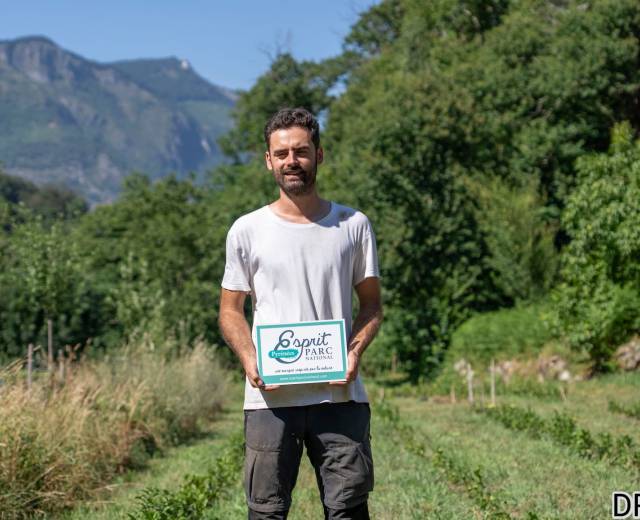
D'autres merveilles dans le Parc national des Pyrénées

3 rue Marque de Dessus
65400 Arrens-Marsous
France

4 chemin des Bayens
65400 Arrens-Marsous
France

12 chemin de Las Parts
65400 Gaillagos
France
